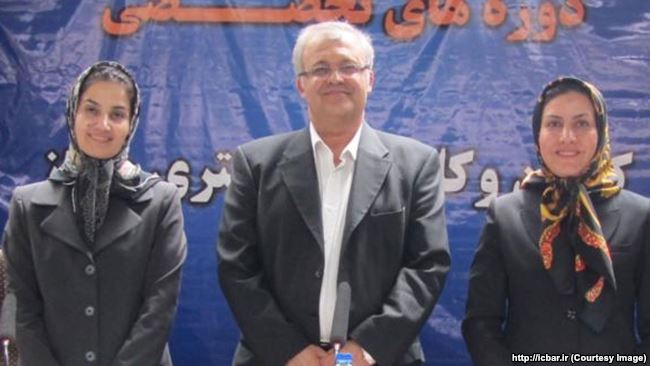Special to WorldTribune.com
By Golnaz Esfandiari, Radio Free Europe / Radio Liberty
Before she was appointed as Iran’s vice president for legal affairs, law expert and college professor Laya Joneydi followed the obligatory Islamic dress code by covering her hair with a scarf and wearing a coat and pants to cover her body.
In announcing her appointment to the cabinet, the Iranian government website posted a statement and a photo of Joneydi wearing the chador, which covers women from head to toe and leaves only the face exposed.

Social-media users were quick to point out that Joneydi had overnight become a so-called chadori, an expression used in Iran to refer to women who choose to wear the chador promoted by conservatives as the “superior hijab” and the best protection for women.
Many posted Joneydi’s before and after pictures while criticizing her decision to wear a chador as hypocritical.
Joneydi later told the reformist Sharq daily that President Hassan Rohani had asked her to wear the chador, saying that it is the cabinet’s “protocol.”
“The respected president, who was elected with 24 million votes, asked me to work with the government. He said my service was needed [and] he also said that the cabinet’s protocol is such [that a woman wears a chador],” Joneydi said.
She added that she respected the demand of Rohani, “whom we all voted for.”
Many blasted Rohani’s decision to impose the chador on Joneydi as a step backward following his appointment of three women, including Joneydi, as vice presidents. The appointments only came after criticism of Rohani’s original all-male cabinet.
Joneydi was also criticized for not standing up for her rights to appear in public with the Islamic clothing of her choice.
“The chador has been declared as the protocol for the presence of a qualified lawyer in the cabinet. Is this anything other than promoting hypocrisy?” asked Mohammad Taghi Karrubi, the son of opposition cleric Mehdi Karrubi, who’s been under house arrest since running for president in 2011.
“Rohani talks of citizens’ rights. He says he’s a lawyer, but he doesn’t respect the most basic rights of a woman, which is the right to decide about her clothing,” journalist Sepehr Khorami wrote on Twitter.
The alleged protocol appears to be a reference to a nonwritten rule in the Islamic republic that only very conservatively dressed women can serve in state bodies.
Women who don’t fully respect the hijab that became compulsory following the 1979 Islamic Revolution are often criticized in Iran for allegedly spreading corruption in society and endangering the country’s interests and values. They often face a state crackdown and pressure over their appearance.
The two other women serving as presidential assistant and vice president — Shahindokht Molaverdi and Massoumeh Ebtekar — are both chadoris. They both served in Rohani’s previous government.

Like Joneydi, Ebtekar, a former spokeswoman for hard-line students who took dozens of U.S. diplomats hostage following the 1979 revolution, reportedly became a chadori after being appointed by former reformist President Mohammad Khatami to oversee Iran’s Environment Department.
Senior ayatollahs had reportedly criticized her appointment and warned that a nonchadori woman should not serve in the government.
Zahra Shojaei, who served under Khatami as an adviser on women’s affairs, recalled in a recent interview the pressure that was put on the president.
“[Khatami’s] appointment of [Ebtekar] had been criticized by some religious officials. We heard later that there had been threats but that he had resisted,” Shojaei said.
She added that one of the criticisms against Ebtekar was that she was not wearing the chador.
“When Ebtekar was told, she said she will [start wearing] the chador. She’s said she’s not opposed to it,” Shojaei said.
It is not clear whether Rohani has faced pressure over Joneydi’s appearance or had asked her to wear a chador to avoid receiving criticism from hard-liners.
The Iranian president hinted he had been pressured by conservatives when he said on August 15 that he intended to name three women as ministers, saying the candidates had been chosen but that “it wasn’t possible [to add them to his cabinet].”
Rohani didn’t elaborate.
He has not publicly commented on the controversy over Joneydi’s chador.
Last month, popular Iranian television personality Azadeh Namdari, a chadori, was accused of hypocrisy and attacked on social media after leaked photos from a trip to Switzerland showed her in public not only without the chador but with her hair exposed while wearing a jumpsuit.
